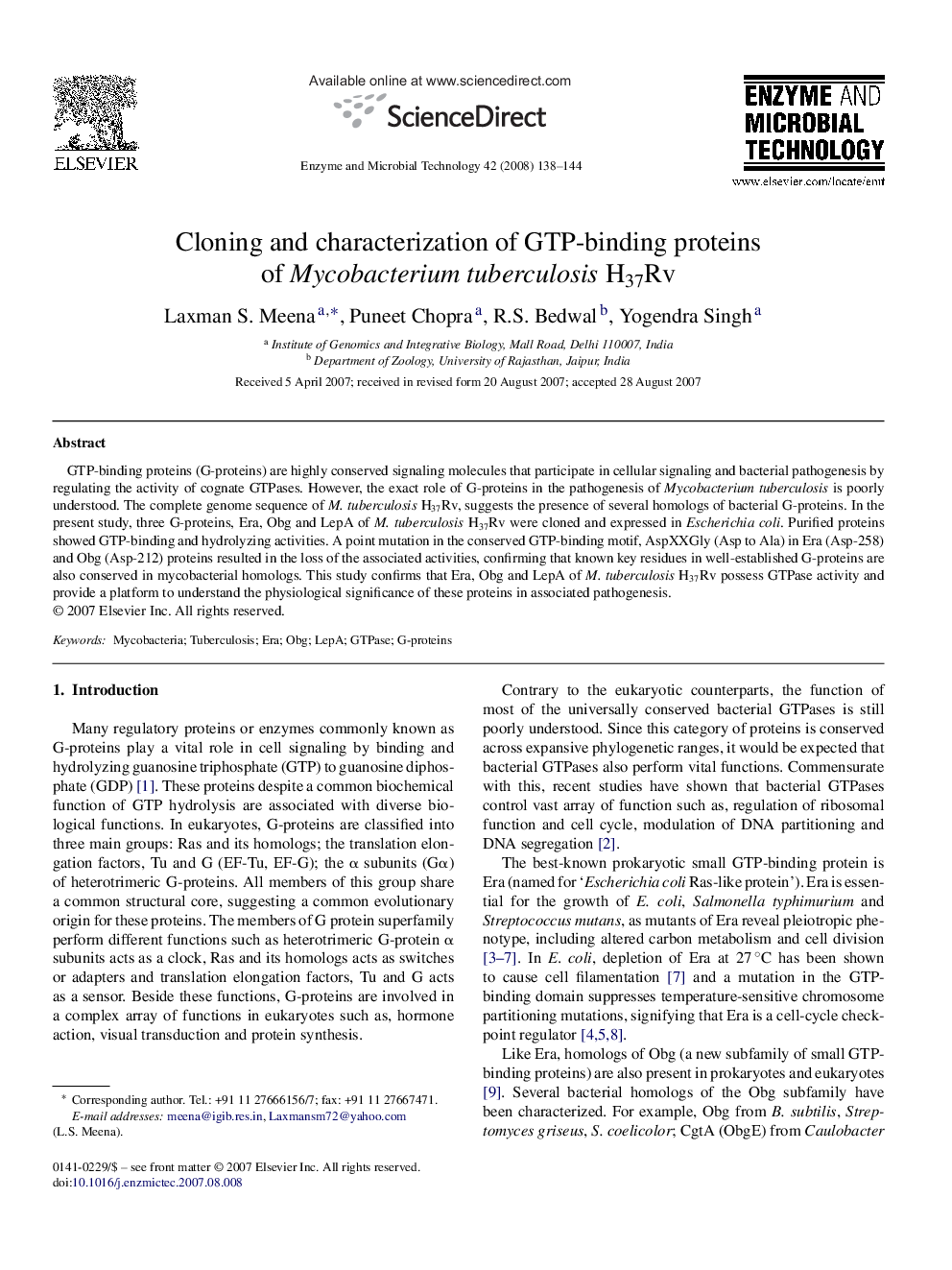| Article ID | Journal | Published Year | Pages | File Type |
|---|---|---|---|---|
| 18414 | Enzyme and Microbial Technology | 2008 | 7 Pages |
GTP-binding proteins (G-proteins) are highly conserved signaling molecules that participate in cellular signaling and bacterial pathogenesis by regulating the activity of cognate GTPases. However, the exact role of G-proteins in the pathogenesis of Mycobacterium tuberculosis is poorly understood. The complete genome sequence of M. tuberculosis H37Rv, suggests the presence of several homologs of bacterial G-proteins. In the present study, three G-proteins, Era, Obg and LepA of M. tuberculosis H37Rv were cloned and expressed in Escherichia coli. Purified proteins showed GTP-binding and hydrolyzing activities. A point mutation in the conserved GTP-binding motif, AspXXGly (Asp to Ala) in Era (Asp-258) and Obg (Asp-212) proteins resulted in the loss of the associated activities, confirming that known key residues in well-established G-proteins are also conserved in mycobacterial homologs. This study confirms that Era, Obg and LepA of M. tuberculosis H37Rv possess GTPase activity and provide a platform to understand the physiological significance of these proteins in associated pathogenesis.
